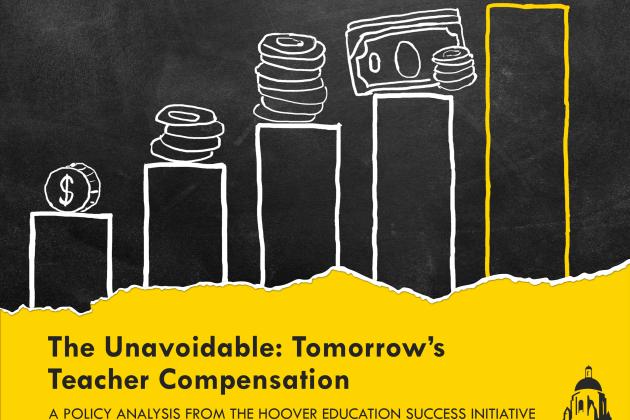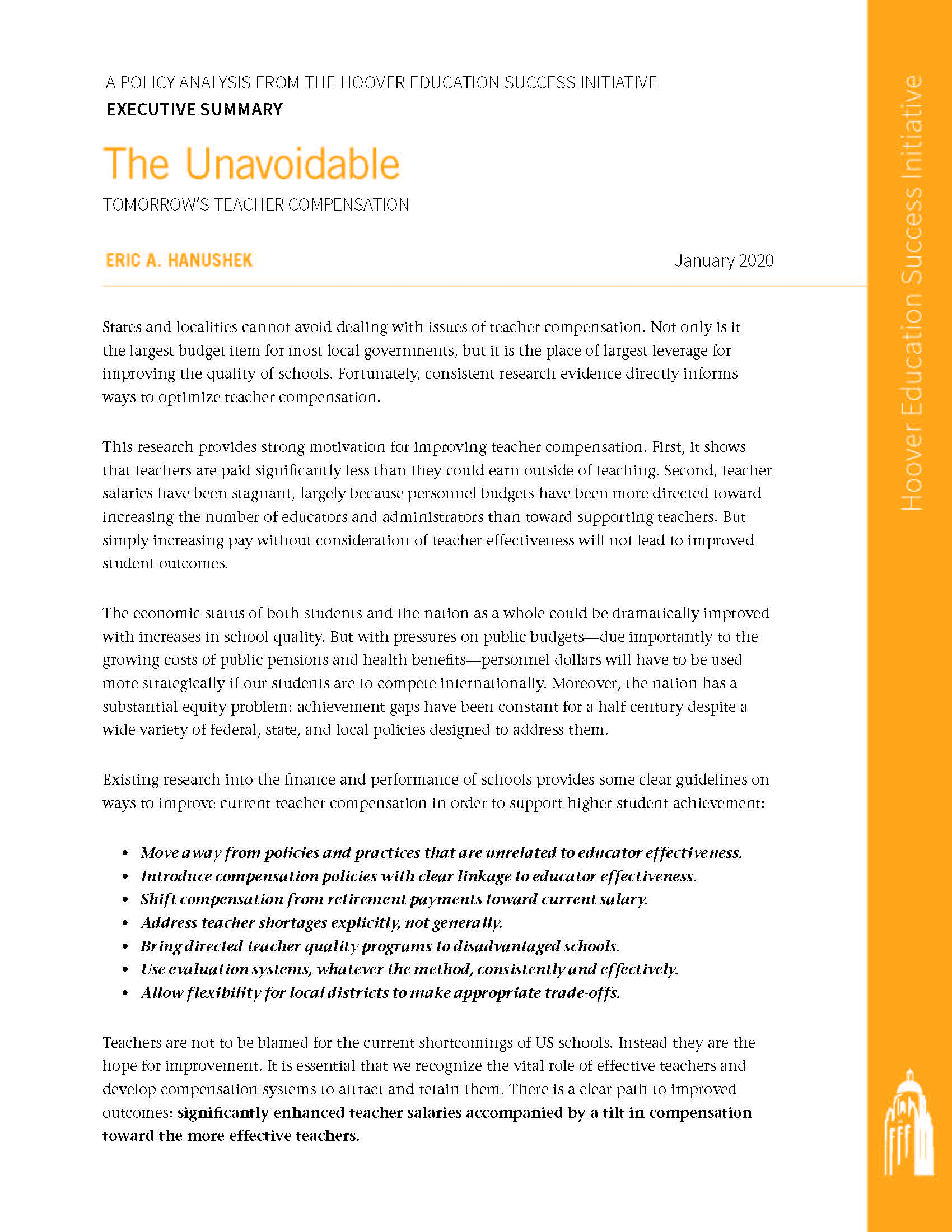- Education
- K-12
- Reforming K-12 Education
States and localities cannot avoid dealing with issues of teacher compensation. Not only is it the largest budget item for many local governments, but also it is the place of largest leverage for improving the quality of schools. Fortunately, ways to optimize teacher compensation can be directly informed by a substantial amount of consistent research evidence. It is essential for the United States to recognize the vital role of effective teachers, and for states and local school districts to develop compensation systems that attract and retain them. This requires enhanced salaries for all teachers accompanied by a tilt in compensation toward those who are more effective.
States and localities cannot avoid dealing with issues of teacher compensation. Not only is it the largest budget item for most local governments, but it is the place of largest leverage for improving the quality of schools. Fortunately, consistent research evidence directly informs ways to optimize teacher compensation.
This research provides strong motivation for improving teacher compensation. First, it shows that teachers are paid significantly less than they could earn outside of teaching. Second, teacher salaries have been stagnant, largely because personnel budgets have been more directed toward increasing the number of educators and administrators than toward supporting teachers. But simply increasing pay without consideration of teacher effectiveness will not lead to improved student outcomes.
The economic status of both students and the nation as a whole could be dramatically improved with increases in school quality. But with pressures on public budgets—due importantly to the growing costs of public pensions and health benefits—personnel dollars will have to be used more strategically if our students are to compete internationally. Moreover, the nation has a substantial equity problem: achievement gaps have been constant for a half century despite a wide variety of federal, state, and local policies designed to address them.
Existing research into the finance and performance of schools provides some clear guidelines on ways to improve current teacher compensation in order to support higher student achievement:
• Move away from policies and practices that are unrelated to educator effectiveness.
• Introduce compensation policies with clear linkage to educator effectiveness.
• Shift compensation from retirement payments toward current salary.
• Address teacher shortages explicitly, not generally.
• Bring directed teacher quality programs to disadvantaged schools.
• Use evaluation systems, whatever the method, consistently and effectively.
• Allow flexibility for local districts to make appropriate trade-offs.
Teachers are not to be blamed for the current shortcomings of US schools. Instead they are the hope for improvement. It is essential that we recognize the vital role of effective teachers and develop compensation systems to attract and retain them. There is a clear path to improved outcomes: significantly enhanced teacher salaries accompanied by a tilt in compensation toward the more effective teachers.
Click here to download the executive summary.
ABOUT THE AUTHOR
Eric Hanushek is the Paul and Jean Hanna Senior Fellow at the Hoover Institution of Stanford University. He has been a leader in the development of economic analysis of educational issues. His widely cited research spans many policy-related education topics including the economic value of teacher quality, the finance of schools, and the role of education in economic growth.
PREVIEW: THE UNAVOIDABLE: TOMORROW'S TEACHER COMPENSATION

















